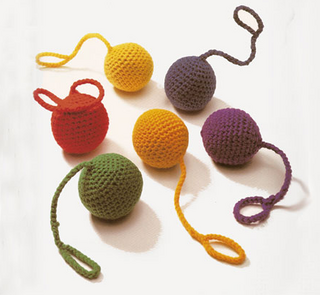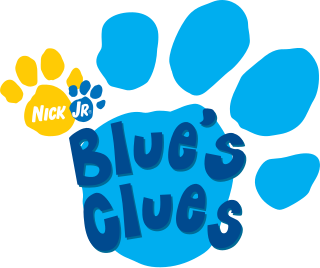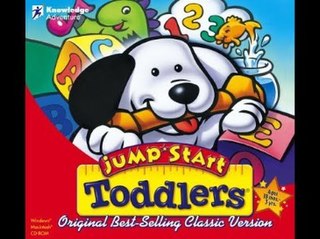
Kristine Tsuya Yamaguchi is an American former competitive figure skater, author and philanthropist. A former competitor in women's singles, Yamaguchi is the 1992 Olympic champion, a two-time World champion, and the 1992 U.S. champion. In 1992, she became the first Asian American to win a gold medal in a Winter Olympic competition. As a pairs skater with Rudy Galindo, she is the 1988 World Junior champion and a two-time national champion.

Childcare, also known as day care, is the care and supervision of one or more children, typically ranging from two weeks to 18 years old. Although most parents spend a significant amount of time caring for their child(ren), childcare typically refers to the care provided by caregivers who are not the child's parents. Childcare is a broad topic that covers a wide spectrum of professionals, institutions, contexts, activities, and social and cultural conventions. Early childcare is an important and often overlooked component of child development.

A preschool, also known as nursery school, pre-primary school, play school or creche, is an educational establishment or learning space offering early childhood education to children before they begin compulsory education at primary school. It may be publicly or privately operated, and may be subsidized from public funds. The typical age range for preschool in most countries is from 2 to 6 years.

Early childhood education (ECE), also known as nursery education, is a branch of education theory that relates to the teaching of children from birth up to the age of eight. Traditionally, this is up to the equivalent of third grade. ECE is described as an important period in child development.
Soccer mom is a term that broadly refers to an American, Canadian, or Australian, middle-class, suburban woman who spends a significant amount of her time transporting school-age children to youth sporting events or other activities. It came into widespread use during the 1996 United States presidential election and over time has come to take on an unfavorable connotation.

Blue's Clues is an American interactive educational children's television series created by Traci Paige Johnson, Todd Kessler, and Angela C. Santomero. It premiered on Nickelodeon's Nick Jr. block on September 8, 1996, and concluded its run on August 6, 2006, with a total of six seasons and 143 episodes. The original host of the show was Steve Burns, who left in 2002 and was replaced by Donovan Patton for the fifth and sixth seasons. The show follows an animated blue-spotted dog named Blue as she leaves a trail of clues/paw prints for the host and the viewers to figure out her plans for the day.
Family values, sometimes referred to as familial values, are traditional or cultural values that pertain to the family's structure, function, roles, beliefs, attitudes, and ideals. Additionally, the concept of family values may be understood as a reflection of the degree to which familial relationships are valued within an individual's life.

Oobi is an American children's television series produced by Little Airplane Productions for the Noggin channel. The show's concept is based on a training method used by puppeteers, in which they use their hands and a pair of glass eyes instead of a full puppet. The main character is a bare hand puppet named Oobi. The first season was a series of two-minute shorts. For its second and third seasons, it became a long-form series, with episodes lasting 13 minutes each. The show originally aired from 2000 to February 11, 2005, with reruns continuing until March 18, 2013.
"Playing doctor" is a phrase used colloquially in the Western world to refer to children examining each other's genitals. It originates from children using the pretend roles of doctor and patient as a pretext for such an examination. However, whether or not such role-playing is involved, the phrase is used to refer to any similar examination.

Yolanda Denise King was an American activist and campaigner for African-American rights and first-born child of civil rights leaders Martin Luther King Jr. and Coretta Scott King, who pursued artistic and entertainment endeavors and public speaking. Her childhood experience was greatly influenced by her father's highly public activism.

Marian Lois Robinson was the mother of Michelle Obama, former first lady of the United States, and Craig Robinson, a basketball executive. She was the mother-in-law of Barack Obama, the 44th president of the United States. She worked as a secretary and executive assistant before and after raising her children with her husband, Fraser Robinson, in Chicago. In retirement, she moved to the White House during her son-in-law's presidency, where she helped raise her grandchildren.
Tiger parenting is a form of strict parenting, whereby parents are highly invested in ensuring their children's success. Specifically, tiger parents push their children to attain high levels of academic achievement or success in high-status extracurricular activities such as music or sports. The term "tiger mother" was brought to public attention by Yale Law School professor Amy Chua in her 2011 memoir Battle Hymn of the Tiger Mother.
Maureen G. Mulvaney, also known as MGM, is a former American special education teacher and college psychology instructor. Mulvaney is an internationally known certified speaking professional, published author and co-author of four books, Amazon bestselling author of The Women's Millionaire Club, and entrepreneur and CEO and owner of MGM & Associates, Inc. Mulvaney wanted a simple “success recipe” that anyone could use to create success in life, whether they were rich or poor or skilled or unskilled. In her book The Women's Millionaire Club, she defines her “secret success recipe”.
Siegfried "Zig" Engelmann was an American educationalist who co-developed the approach to instruction termed "Direct Instruction" (DI). Engelmann was Professor Emeritus of Education at the University of Oregon and Director of the National Institute for Direct Instruction. He wrote more than 100 curricula using DI principles and numerous other books and articles.
Mother Juan Aviance is an American secretary, voguer / dancer, music artist, nightclub host / promoter, record label owner, and CEO / A&R. He is the founder and "Mother" of the House of Aviance, one of the legendary houses that emerged from the U.S. ball culture in the 1980s, a House which is still active in New York City." He is also founder, CEO and A&R of Aviance Records, LLC, a multi-genre record label that promotes new and upcoming artists. He is regarded within the ballroom scene and is "House Mother" to the nightlife personalities and recording artists Kevin Aviance, and Erickatoure Aviance.

James Edward Dougherty was an American police officer, the first trainer of Special Weapons and Tactics. He is best known as the first husband of actress Marilyn Monroe.

Gladys Pearl Monroe, also known as Gladys Pearl Monroe Baker Mortensen Eley, was the mother of American actress Marilyn Monroe. Born in Mexico, Baker grew up in the Los Angeles metro area. Her father died in 1909 after suffering from mental illness and alcoholism.
Early childhood education in the United States relates to the teaching of children from birth up to the age of eight. The education services are delivered via preschools and kindergartens.

JumpStart Toddlers is a 1996 educational video game, the fourth within the JumpStart franchise. An enhanced version was released in 2000.






















